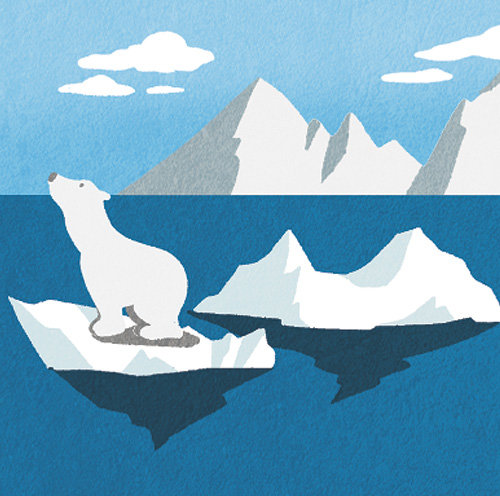Cause for prolonged monsoon season this past summer
Cause for prolonged monsoon season this past summer
Posted September. 26, 2020 07:39,
Updated September. 26, 2020 07:39


Araon, the only icebreaker for polar regions in Korea, has returned to the country after completing her 11th navigation through the Arctic Ocean. According to Araon researchers, sea ice in the Chukchi Sea, which is the entrance in the Arctic Ocean to the Pacific Ocean, has been melted so extensively that it was easily visible through naked eyes in early August. This can be monitored through imagery from satellites as well. The area of melt sea ice in the Arctic Ocean has been shown to be the smallest ever in July this year since the researchers started surveying the areas via satellites.
In fact, such phenomena are happening extensively throughout the globe. According to a joint study by the University of Leeds and the University of Edinburgh, the volume of ice that has disappeared in the polar regions, Greenland, the Andes Mountains, and the Himalayas from 1994 to 2017 due to climate change, which amounts to 28 trillion tons.
People often recall the problem of rising sea levels when large volumes of ice melt en masse. However, this is only part of many problems that arise due to melting sea ice in the Arctic Ocean. Generally, ice reflects sunlight, stabilizes the atmosphere, and controls the temperature on earth. If ice disappears, sea and land surfaces get exposed naturally, and these surfaces naturally absorb much more heat than ice. So, as the size of ice on the earth surface gets smaller, the earth will come to lose its own ability to control temperatures in tandem as well, and global warming will accelerate, which in turn further reduces the size of ice in a vicious cycle.
The future is even bleaker. According to a study published in “Nature Climate Change” by the British Antarctic Survey last month, sea ice in the Arctic Sea can completely melt within 15 years. In this case, we will have to live in an era where abnormal climate becomes our daily routine.
Instead of simply responding to rising sea levels caused by melting ice, we have to constantly pay attention to diverse impact that derives from such situations. For one, we need to reduce unnecessary use of electronics in our daily life. Unless we accelerate such efforts, our decedents could end up suffering from more serious pain than now, as Planet Earth where we are living on will constantly face abnormal weather conditions in the future. We share our own fate with Planet Earth.







